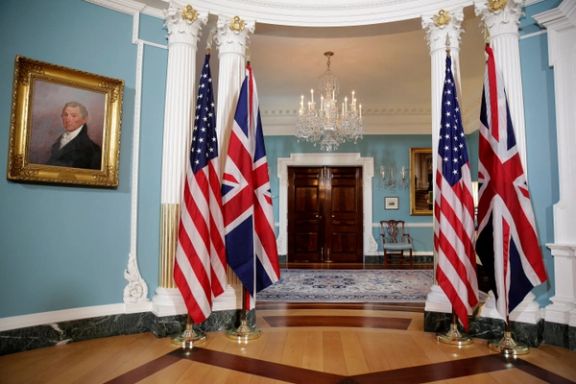London And Washington Sync New Sanctions Against Iran

The United States and Britain on Thursday announced new sanctions on Iran targeting its military and unarmed aerial vehicle production after its attack on Israel.

The United States and Britain on Thursday announced new sanctions on Iran targeting its military and unarmed aerial vehicle production after its attack on Israel.
US President Joe Biden also announced that G7 leaders were committed to acting together to increase economic pressure on Tehran.
Biden said the United States and its allies had helped Israel beat back the April 13 missile and drone strike and were now holding Iran accountable with the new sanctions and export controls.
"The sanctions target leaders and entities connected to the Islamic Revolutionary Guard Corps, Iran’s Defense Ministry, and the Iranian government’s missile and drone program that enabled this brazen assault," Biden said in a statement.
"And our allies and partners have or will issue additional sanctions and measures to restrict Iran’s destabilizing military programs," Biden said.
Britain also announced sanctions on military figures and entities in a coordinated move with the United States. The sanctions, which include asset freezes and travel bans, target Iran's defense minister and other military figures and organizations including the Armed Forces General Staff and the Islamic Revolutionary Guards Corps (IRGC) Navy.
A US Treasury Department statement said the US measures targeted 16 individuals and two entities enabling Iran’s UAV production, including engine types that power Iran’s Shahed variant UAVs, which were used in the April 13 attack.
Treasury said it was also designating five companies in multiple jurisdictions providing component materials for steel production to Iran’s Khuzestan Steel Company (KSC), one of Iran’s largest steel producers, or purchasing KSC’s finished steel products.
Also targeted were three subsidiaries of Iranian automaker Bahman Group, which it said had materially supported Iran's Islamic Revolutionary Guard Corps.
The statement said the US Commerce Department was also imposing new controls to restrict Iran’s access to technologies, such as basic commercial grade microelectronics.
Tehran says it carried out the April 13 attack in retaliation for a presumed Israeli strike on the Iranian consulate in Damascus which killed two generals and several others on April 1. Israel has said it will retaliate, while a senior Iranian Revolutionary Guards commander said on Thursday Iran could review its "nuclear doctrine" following Israeli threats
Treasury said that concurrent with its action, Britain was imposing sanctions targeting several Iranian military organizations, individuals and entities involved in Iran’s UAV and ballistic missile industries.
Britain said these sanctions included the General Staff of the Armed Forces and the Islamic Revolutionary Guard Corps (IRGC) Navy, according to an official notice.
"We’re using Treasury’s economic tools to degrade and disrupt key aspects of Iran’s malign activity, including its UAV program and the revenue the regime generates to support its terrorism," U.S. Treasury Secretary Janet Yellen said in the statement.
"We will continue to deploy our sanctions authority to counter Iran with further actions in the days and weeks ahead."
The US statement came after finance ministers and central bank governors of the Group of Seven industrial democracies said after a meeting in Wednesday they would "ensure close coordination of any future measure to diminish Iran's ability to acquire, produce, or transfer weapons to support destabilizing regional activities."
European Union leaders also decided on Wednesday to step up sanctions against Iran after Tehran's attack on Israel raised concerns about a wider conflict in the Middle East.